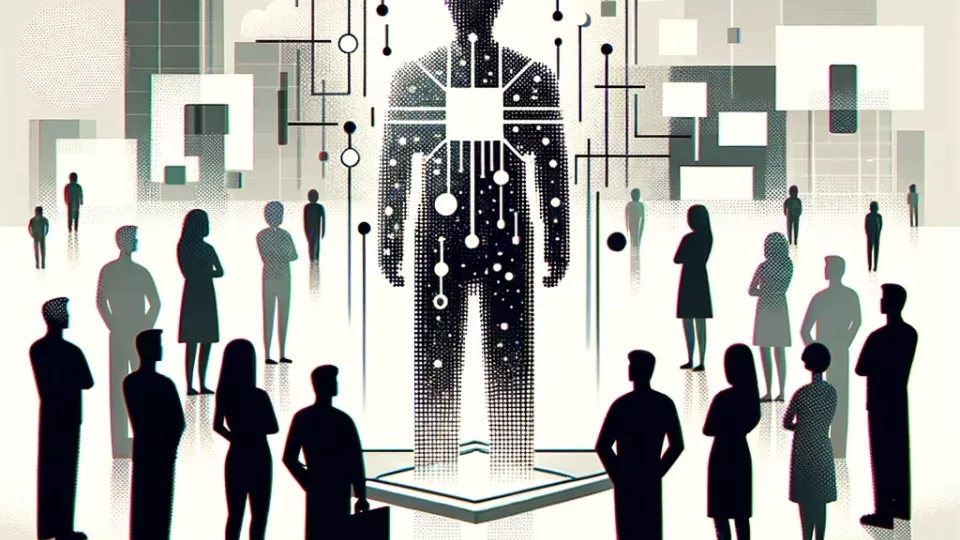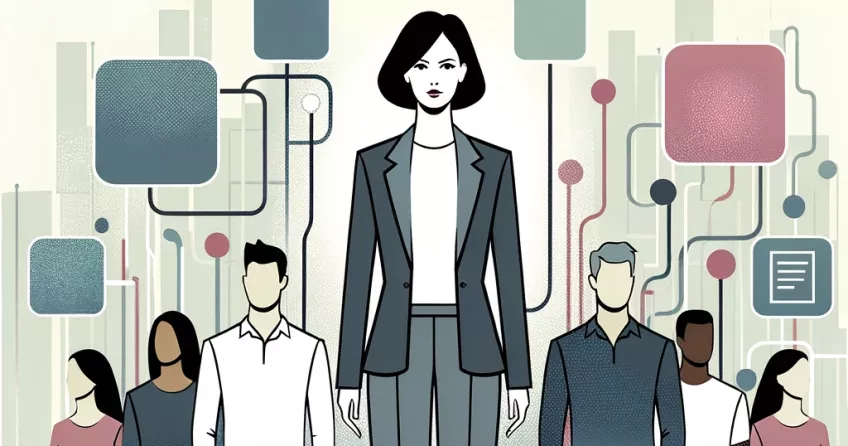You may not have your boss in an app, yet. But the idea is not as futuristic as it may sound. Already, food deliverers by bike receive their assignments and evaluations via mobile phones, and at large Amazon distribution centres, warehouse staff can be supervised by an app instead of a human manager.
“Today, traditional tasks such as management, supervision and even recruitment can be handled by software. This is especially common in the gig economy. This type of AI management has received a lot of attention, both in terms of negative press and in academia where a lot of research has already been done,” says Sverre Spoelstra, senior lecturer in business administration at Copenhagen Business School (CBS) and Lund University School of Economics and Management (LUSEM).
Updating knowledge to be relevant to students
Sverre Spoelstra has been researching ethics and morality, gamification and other aspects of organisations and leadership for over twenty years. But algorithmic leadership is a new – and absolutely necessary – interest.
“I first heard about algorithmic leadership two years ago. I realised pretty quickly that I had to learn more about this. How else can I remain relevant as a teacher to my students? I owe it to them to stay updated.”
To understand what algorithmic leadership is, you may need to start by distinguishing between leadership and management, or between natural, inspiring leaders and managers in a formal hierarchy.
“In research, there is a fairly clear and important difference between management on the one hand and leadership on the other,” says Sverre Spoelstra. “Management is more about the rule-based and hierarchical; doing what you are supposed to do. Leadership, on the other hand, does not necessarily have to be part of a hierarchy. Charismatic people who inspire others can also be found outside the formal management structure.”
That's why, according to Spoelstra, it has previously been thought that leadership is something typically human, something that machines cannot imitate. More administrative aspects of management, on the other hand, are easier to structure digitally and also to gamify.
“Typical examples of algorithmic management can be found in gig economy companies such as Uber and Upwork or in Amazon's warehouses: there are already people who receive all their work instructions in an app. How much time they have and whether they succeed or fail is not decided by a human manager, but by algorithms.”
New project on digital management and leadership
At present, algorithmic leadership is mainly studied from the management side, such as control and communication with gig workers. Sverre Spoelstra looks forward to applying the theories to other industries as well.
Together with research colleagues Nick Butler at Stockholm University and Emilie Hesselbo at LUSEM, Sverre Spoelstra has just started a new research project on changing leadership in digitalised work environments. The plan is to interview employees at knowledge-intensive IT companies and to study, more or less in real-time, how managers use different programmes to decide on budgets and motivate employees.
“The algorithmic leadership that I am interested in still involves people. It's people and leaders in partnership with machines. A lot of your decisions and what's behind the scenes might be about automated processes or algorithmically calculated things, but it's the human being who fronts it and can make different decisions than the ones proposed by machines, if it's more ethical, for example.”
A reversed “Mechanical Turk”
In a forthcoming research paper, on the ethics of algorithmic leadership and the game of business, Sverre Spoelstra and Nick Butler describe a possible future scenario where human leadership – such as a charismatic CEO – acts as a reverse “Mechanical Turk” for an algorithm-driven business machine.
“There are both utopian and dystopian perspectives on this. On the one hand, there will still be a need for human leaders who can provide the empathy and reflection that a machine cannot. On the other hand, it assumes that those kinds of leadership jobs will still exist. It is quite possible that companies will be able to make the owner super-rich in the future, solely through smart automation and perhaps without any employees. Then only the CEO will be left, as a kind of figurehead. Behind them, is the corporate machine.”
The historical background of the so-called Mechanical Turk is this: In the 18th century, a revolutionary chess machine was invented that managed to beat humans. Or, did it? It later turned out to be a hoax, as the machine was hiding a skilled human chess player.
“We might be witnessing the reverse today,” Sverre Spoelstra suggests. “Instead of a machine that is secretly human, some corporations are trying to create a human face hiding an algorithmic machine.”
Chess itself is a hobby of Sverre Spoelstra’s and the analogy with the Mechanical Turk is a favourite of his, he says.
“For a long time, success in chess was seen as something reserved for human intelligence. But today we know that's not true. Google's AlphaZero doesn't even need to know the rules of chess. It learns and then beats us, easily. But can a machine learn to be an empathetic leader?”
Mechanisation and digitalisation have already changed both our work and our everyday lives. Sverre Spoelstra believes that the algorithmic approach can also be transferred to the academic world.
“Who knows, in five or ten years the way we conduct research may have changed. One basic idea behind science is that anyone should be able to achieve the same results as someone else. This means that much is already algorithmic and suitable for machines. What will this mean for academia? It remains to be seen,” he says and continues:
“On the other hand, ten years ago it was said that digitised, international education would have major consequences for universities. Why would you choose anything other than Oxford if you could study anything, from anywhere?' Yet we still see that students want to study in a physical location and that the best teachers are those who are real people,” says Spoelstra.
Those of your students who will become leaders: What will they need to learn to succeed?
“Above all, the ability to reflect. We as teachers need to have created an awareness in them and an ability to reason about the ethical consequences of, for example, data-driven decisions. This will continue to be important, as will being an active, interested and empathetic leader who recognises employees for who they are and what abilities they have.”


